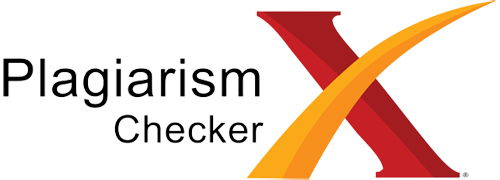The Prosumer's Role as a Driver of Energy Transition: A Study of Individual Power Producers in Jakarta, Indonesia
Abstract
Keywords: prosumer, energy transition, rooftop solar PV, techno-social, energy policy.
Full Text:
PDFReferences
N. Ford, J. Stephenson, and V. Brown, Energy prosumers: A review of the New Zealand and international literature. Centre for Sustainability, University of Otago, 2016.
N. Ford, J. Stephenson, V. Brown, B. Frame, and R. Lawson, Prosumer collectives: A review. University of Otago, 2016.
J. B. Jacobs, “The Energy Prosumer,” Ecology Law Quarterly, vol. 43, no. 3, pp. 519–580, 2016.
A. Toffler, A. B. M. S. Islam, and F. S. Butt, “Prosumers: A Catalyst for Sustainability, Innovation, and Market Transformation,” World, vol. 4, no. 3, pp. 499–510, 2023.
T. S. H. Schuit, “The Prosumer in the Energy Union,” Sjørettsfondet, no. 502, 2018.
G. G. Parra, A., “The Energy Prosumer,” ResearchGate, 2017.
M. Swilling et al., “Linking the energy transition and economic development: A framework for analysis of energy transitions in the global South,” Energy Research & Social Science, vol. 81, p. 102273, Nov. 2021.
A. S. Oyewo, A. A. E. Aghahosseini, P. D. Lund, and C. Breyer, “Affordable Clean Energy Transition in Developing Countries: Pathways and Technologies,” Energies, vol. 15, no. 8, p. 2786, Apr. 2022.
International Network of Energy Transition Think Tanks (INETTT), “Just energy transitions in developing countries,” 2024.
A. S. Oyewo, A. A. E. Aghahosseini, P. D. Lund, and C. Breyer, “Affordable Clean Energy Transition in Developing Countries: Pathways and Technologies,” PMC, Apr. 2022.
O. O. O. Ige, “Equitable Energy Transition: A Global Legal Framework for Developing Economies,” International Journal of Arts, Languages, and Social Science, vol. 4, no. 2, pp. 1–15, 2024.
UNCTAD, “Investing in the energy transition: Countries need more balanced policies,” United Nations Conference on Trade and Development (UNCTAD), Nov. 21, 2023.
University of Twente, “Research - Climate Centre,” 2024.
PRISM, “Systems-Based Governance,” Sustainability-Directory.com, 2024.
University of Twente, “Education - Climate Centre,” 2024.
A. A. Senin, N. A. M. Senin, and S. N. S. Salim, “Techno-social entrepreneurship: a systematic literature review and future research agenda,” Society and Business Review, vol. 19, no. 2, pp. 240–262, 2024.
DOI: https://doi.org/10.29040/ijcis.v6i3.244
Article Metrics
Abstract view : 145 timesPDF - 38 times
Refbacks
- There are currently no refbacks.

This work is licensed under a Creative Commons Attribution 4.0 International License



















